Tuesday, November 15th Rooms 308 - 313
Plenary Session at a glance:
9:00 - 9:10 Welcome
Nann Fangue, University of California, Davis
9:10 - 9:35 Lessons from the Ocean for Integrating Science in Policy Decisions
Steve Gaines, University of California, Santa Barbara
9:35 - 10:00 The Scientific Challenges of Establishing Appropriate Baselines for Watershed Restoration
Daniel Schindler, University of Washington
10:00 - 10:20 Brown-Nichols Science Award
10:20 - 10:40 Break
10:40 - 11:00 Academic Research, Delta Smelt, and Public Policy
Peter Moyle, University of California, Davis
11:00 - 11:20 Use of Science in Complex Public Policy Decision-Making
Felicia Marcus, State Water Resources Control Board
11:20 - 11:40 A Guide for the Perplexed
Phil Isenberg, formerly Delta Stewardship Council
11:40 - 12:00 Data, Decisions, Delta Science, and Delta Directions
Cliff Dahm, Delta Science Program
Plenary Session details
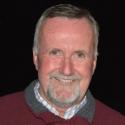 9:10 - 9:35 am
9:10 - 9:35 am
Lessons from the Ocean for Integrating Science in Policy Decisions
Steve Gaines, Dean, Bren School of Environmental Science & Management at UCSB
The Bay Delta poses a complicated array of environmental and social challenges. Science has a lot to add to the discussion, but as in many complex, contentious situations, science often gets relegated to a small role. This challenge is equally true in other systems, and my work in the ocean has many parallels. I will draw on my experience from a variety of marine policy discussions with strong conflict between stakeholder groups to share lessons learned about how to make science play a more effective role in these discussions. Some of these lessons emerged from successes, others emerged from failures. I will highlight four major lessons – focus on the science of solutions as much as on defining the problems, build new teams to enhance your impact, embrace the fact that different people value different things, and choose pretty good over perfection if it helps scale solutions. I believe all of these lessons transcend the systems we work in and the problems we tackle, so I hope that they can stimulate interesting dialogue on how science can play a more impactful role in enhancing solutions for the complex challenges in the Bay Delta.
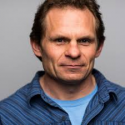 9:35 - 10:00 am
9:35 - 10:00 am
The Scientific Challenges of Establishing Appropriate Baselines for Watershed Restoration
Daniel Schindler, Harriet Bullitt Endowed Chair in Conservation, School of Aquatic and Fishery Sciences, University of Washington.
Ecological restoration seeks to reestablish ecological structures and processes in ecosystems that have been degraded by human activities. Success is typically assessed by comparing prevailing conditions to restoration targets chosen to reflect desired ecosystem states. Restoration targets are often assumed to be an approximation of the ecosystem under superficial human influence. While such comparisons are convenient for developing restoration strategies and measuring success, they often lead to the assumption that there is a single stable state that the ecosystem should exist in. Based on long-term analyses of watersheds in coastal Alaska, I will argue that restoration targets should be established that emphasize turnover and restructuring of ecosystem functions rather than the more typical approach that assumes there is a single desirable configuration of an ecosystem.
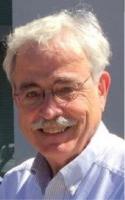 10:40 - 11:00 am
10:40 - 11:00 am
Academic Research, Delta Smelt, and Public Policy
Peter Moyle, Center for Watershed Sciences and Department of Wildlife, Fish, and Conservation Biology, University of California, Davis.
The current ecological crisis in the Delta first came to major public attention with the listing of the delta smelt. It was met with an unprecedented research effort, especially in academia. The result has been a vastly improved knowledge of the Delta. But the Delta ecosystem has continued to undergo rapid change, as exemplified by the continued decline of delta smelt. Science-based policy studies, such as those of the joint efforts of the UCD Center for Watershed Sciences and the Public Policy Institute of California, have shown alternative pathways to the future other than the status quo. So far, the status quo continues to be the pathway of choice. The extinction of delta smelt may become the symbol of the result of taking that pathway as the ‘easy way out’. Nevertheless, it is possible to be optimistic that academic and other research endeavors will eventually allow for switching pathways, although at increasing ecological and economic cost.
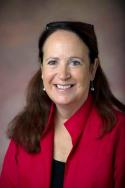 11:00 - 11:20 am
11:00 - 11:20 am
Use of Science in Complex Public Policy Decision-Making
Felicia Marcus, Chair, State Water Resources Control Board.
The State Water Board incorporates science into decision-making, particularly regarding the San Francisco Bay-Delta. Science is employed in a variety of ways, through the retention of expert panels, the use of peer review, the publishing of scientific basis reports, the convening of workshops, the use of the Delta Science Program, and in listening to the invocation of “science” on behalf of wildly differing points of view in a very public policymaking process. Different examples will be shared, as well as the view from the perch of a public policy maker trying to incorporate science into complex decisions that are about balancing different beneficial uses of water in an arena in which few want to share.
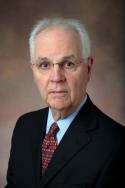 11:20 - 11:40 am
11:20 - 11:40 am
A Guide for the Perplexed
Phil Isenberg, former Chair and Vice-Chair of the Delta Stewardship Council.
Our panel is asked to explain "how we use science and data to develop solutions and support decisions in the Bay Delta". Implicit in the question is the belief that a lot of good science is being ignored by policy-makers. We look to possible answers from Winston Churchill, C.P. Snow, Jeff Kightlinger, Dr. John A. Wiens and John Fleck to provide guidance to those of us perplexed by how to connect science and policy.
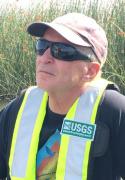 11:40 - 12:00 noon
11:40 - 12:00 noon
Data, Decisions, Delta Science, and Delta Directions
Cliff Dahm, Independent Lead Scientist, Delta Science Program.
The lead scientist talk by Peter Goodwin during the 2014 Delta Science Conference focused on six themes: One-Delta and one-science, sustaining science mentors, the role of technology, key science discoveries, climate change and communication, and no magic bullet. How have we done in addressing some of these themes? Some important progress has been made. First, the white paper on “Enhancing the Vision for Managing California’s Environmental Information” was issued in 2015. Second, the synthesis paper “Challenges Facing the Sacramento-San Joaquin Delta: Complex, Chaotic, or Simply Cantankerous” was published in 2015 and provided an overview of Delta issues from the perspectives of four former lead scientists. Third, an “Integrated Modeling of Estuarine Systems” workshop was held at UC Davis to emphasize the importance of data, modeling, and decision-making. Fourth, the State of Bay-Delta Science 2016 update is being published as peer-reviewed papers by San Francisco Estuary and Watershed Science. Fifth, the Science Action Agenda for 2017 is an ongoing effort called out by the Delta Science Plan and drawing upon the input and knowledge of participants attending this conference. Sixth, the Science Enterprises workshop brought together scientists from coastal ecosystems throughout the US to learn about how science has developed and is conducted. Important progress is being made. What directions should Delta science take in the coming years? I will share my ideas on some fruitful scientific endeavors for the coming years.
